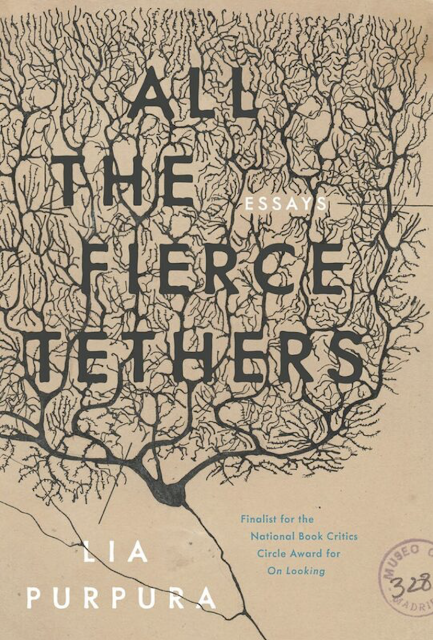"All the Fierce Tethers" by Lia Purpura (published 2019)

There is an immediate sense of Lia Purpura's poetic intellectualism presented right within the first page of "All the Fierce Tethers". She begins with an analysis of screaming: what it is and what it is not, what it consists of, its meaning or lack of it. Then Purpura goes right into Edvard Munch's "The Scream". There is much more to this first essay, but already within these two topics she uses Deconstruction as a philosophical tool and then begins to present examples of what Walter Benjamin wrote about in his brilliant, seminal essay, "The Work of Art in the Age of Mechanical Reproduction" (i.e. Edvard Munch's "The Scream" reproduced on magnets, on coffee mugs, on blankets. Where does its meaning - as a work of art - go? There is an important *lack* to be understood.) Whether Purpura knew whether or not she was doing what I say she is doing doesn't really matter. It doesn't matter because "All the Fierce Tether...



